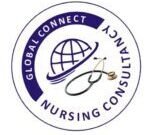COMMON QUESTIONS ABOUT THE NCLEX EXAM
– The NCLEX (National Council Licensure Examination) is a Computer Adaptive Test used by boards of nursing to assess candidates for licensure in the U.S.
Candidates must have completed a nursing program such as a 3-year diploma in General Nursing, BSN (Bachelor of Science in Nursing), or Post RN.
Apply to the relevant State Board of Nursing (BON) for eligibility. Once approved, you will receive an Authorization to Test (ATT) and can schedule your exam via Pearson VUE.
The NCLEX-RN exam consists of 85 to 150 questions, determined by the computer-adaptive testing (CAT) format.
The NCLEX is pass/fail, meaning it assesses your ability to provide safe and effective nursing care at an entry-level, without a specific score requirement.
Preparation includes reviewing the exam format, practicing with tools like UWorld, Archer Review, Simple Nursing, or Saunders, and focusing on your weak areas.
Study times vary, but most candidates prepare for 1 to 3 months depending on individual learning needs and prior knowledge.
Yes, you can retake the exam after 45 days. There is no limit to the number of attempts, but some states have specific regulations after multiple failures.
After passing, you will receive your nursing license from the state BON, allowing you to practice as a licensed nurse.
To manage anxiety, maintain a consistent study routine, use relaxation techniques, and focus on both your physical and mental well-being.
Official results are available within six weeks, though candidates can use Pearson VUE’s Quick Results service to get unofficial results within 48 hours for a small fee.
The test adapts in real-time, adjusting the difficulty of questions based on your performance throughout the exam.
Yes, candidates must achieve an overall IELTS score of 6.5 (with at least 6.0 in each section and 7.0 in speaking) or equivalent scores in OET or PTE.
Eligibility for the NCLEX typically takes 3 to 6 months, depending on the state Board of Nursing and the completeness of your application. Factors such as document submission, background checks, and processing times may affect the timeline.
No, it is not mandatory to practice in the state where you take the NCLEX. Once you pass the exam, your license can be transferred to another state through licensure by endorsement. Additionally, if you hold a compact license, you can practice in any of the participating states without needing to retake the NCLEX, as long as you meet the requirements of the state in which you wish to work.
Yes! The EB-3 Visa, which we recommend for nurses, allows you to move to the USA with your spouse and children under the age of 21. It’s crucial to start gathering all necessary documents, including proof of marriage and your children’s birth certificates, as these will be required for the migration process.
You do not need extensive experience to begin the self-sponsored program. The primary requirement is to be a registered nurse in your home country, which is essential for starting your NCLEX journey. However, some level of experience will be necessary after you pass the NCLEX, as you will need to apply for jobs in the US. Begin the process now, and you will gain valuable experience along the way.
While there is no harm in taking the IELTS or OET first, we recommend prioritizing the NCLEX. Here are two key reasons for this approach:
The NCLEX is the essential examination for the US immigration process. Your IELTS results will only be needed during the Visa Screen stage, which comes after you have completed the NCLEX.
IELTS and OET results expire after two years. If you complete these tests first and encounter unexpected delays in your immigration process, you may have to retake them after passing the NCLEX.
No, it will not be difficult to secure a job as a nurse in the US. Currently, the United States requires approximately 250,000 nurses by 2031. This demand is steadily increasing due to various factors, including an aging workforce. Presently, there are numerous job vacancies for nurses across the country. Additionally, the Bureau of Labor Statistics identifies nursing as one of the most marketable careers in the US today.
